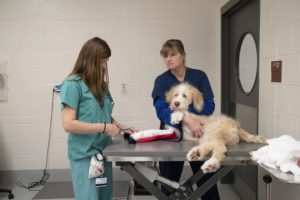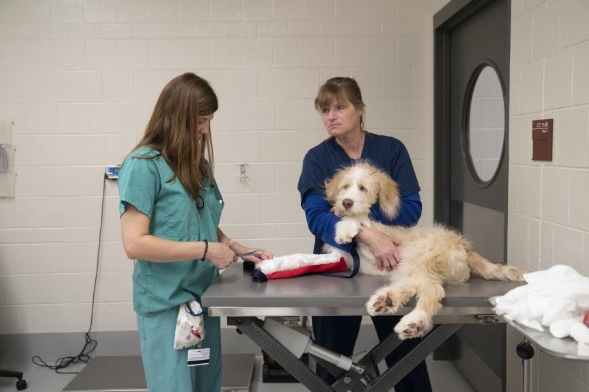When vet doctors recommend veterinary orthopedic surgery for pets, this news often shakes the pet owners to the core. The idea of surgery frightens them, and this is the major part of the reason why most pet owners are skeptical about surgeries. However, veterinary medicine has improved drastically over the past few years, and there’s a slim chance that your pet will get any kind of complication after the surgery. With proper care, you can help your four-legged friend heal big time. In this article, we’d discuss tricks that you can implement to speed up your pet’s healing.
Here are 5 tips that you can follow to ensure quick and smooth recovery of your pet after surgery.

1. Stick to the Recommended Medication
Veterinarian doctors understand pets better than anyone. When they recommend medication, rest assured that they are doing what’s best for your companion. Always remember that self-medication is not the way to go. It will only bring harm to your pet’s health. So, it’s better to stick to the medication plan and follow all the instructions. Also, make sure you give all the medicines on time and for the period required.
2. Keep Your Pet Dry
Always keep your pet away from water for a few days after surgery. If the wound is within reach of its mouth, make sure it doesn’t lick it as it may worsen the situation. For this purpose, you can use a muzzle. If the wound is under its belly, make sure it doesn’t sit on wet areas. Furthermore, don’t take your pet for a walk when it’s raining. It’s better to cover the wounded area with a sheet or bandage whenever going for a walk.
3. Monitor the Incision
Proper wound monitoring is the key to quick healing. Monitor the incision on a regular basis to see if there is any kind of complication, such as redness, swelling, or bleeding. If you notice any such thing, reach out to a vet as soon as possible. If your vet asks you to change the bandage or clean the wound, make sure you follow the instructions.
4. Isolate Your Pet
It’s a good idea to isolate your pet as pets tend to behave unusually for a week or two after the surgery. They may harm your kids or other pets. Restrict their activities by confining them to a limited and warm place and make sure they don’t have access to stairs or furniture. Especially if your pet has undergone veterinary orthopedic surgery, make sure it doesn’t walk too much.
5. Monitor their Emotional State
When your pet is confined to a limited area, this is the time when your pet starts behaving unusually. Excessive barking or meowing, panting, restlessness, and whimpering are some of the indications that your sweet pet is anxious. To cope with this problem, you can shift your pet to a quiet place where it would feel relaxed. If you still face the same situation, contact your vet. Spending time with your pet will also comfort it.
Proper care is important once your sweet companion has undergone surgery. It’s the time when it needs you more than ever. The recovery time will depend on the kind of procedure it went through. We know that pets are important to your mental health. These tricks to speed your pet’s healing time after surgery will definitely help you out.







